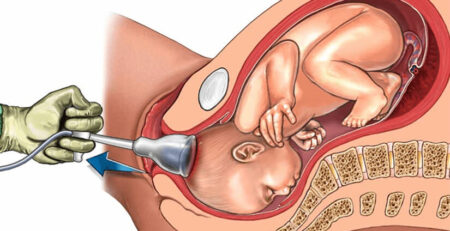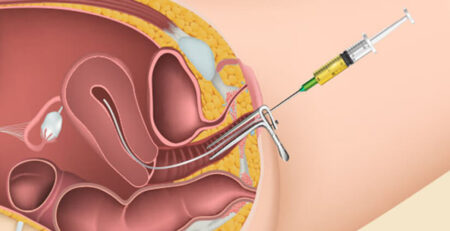Getting Pregnant After 40
Are you thinking about having a baby after 40? If yes, you are not alone. Today, many women choose to start or expand their families later in life because they focus on career advancement, financial stability and other life goals. At the same time, you might wonder if it is possible to conceive a baby after 40.
Good news, ladies! You can still get pregnant after 40 either naturally or you can leverage ART. IVF treatment in women is one of the most common ART solutions. Although options are there, still the chances of pregnancy reduce with age. But why did it happen? Are there any risks in getting pregnant after 40? What can you do to ensure a healthy pregnancy over 40?
Let’s get answered!
Fertility After 40
While it is possible to get pregnant after 40, you need to understand that the chances of conceiving pregnancy are reduced with age. According to the studies, women of a younger age, say in their 20s, with each menstrual cycle, have a 20% chance of getting pregnant naturally. Even with IVF treatment, the chances are best at a younger age and the greatest likelihood of sustaining healthy pregnancies. However, as the biological clock keeps ticking, the chances reduce. Women over 40 face a roughly 5% chance of pregnancy with each menstrual cycle.
Let’s understand it with a table.
| Age | Chances of Pregnancy Per Cycle |
| Under 30 | About a 20% chance per cycle |
| 30-35 | Around a 15% chance per cycle |
| 35-40 | Roughly a 10% chance per cycle |
| Over 40 | 5% or less chance per cycle |
But why does fertility decrease after 40? There are several reasons for this. Some of them are mentioned below:
Decline in Egg Quantity and Quality: When girls are born, their ovaries contain around one million eggs. However, as you age, the amount of eggs decreases. Imagine that every day, you lose about 30 immature eggs.
So, when you hit puberty, you will lose around 300,000 eggs. Fast forward to age 30, and that number dwindles to about 100,000. By the age of 30, that figure has dropped to approximately 100,000. And by the time you reach 40? Around 20,000 eggs are remaining. Do you know that age not only affects the number of eggs but also compromises the quality?
Now, you might be wondering how this egg count is measured. The fertility or IVF specialist in Delhi measures it with a simple blood test called the Anti-Mullerian Hormone, or AMH test. The anti-Mullerian hormone is produced by the follicles in your ovaries, where all those egg cells are developing. With age, the level of AMH naturally goes down. This low AMH level in the test gives an idea of how many eggs are left, but it can’t identify the quality of the egg.
Increased Risk of Chromosomal Abnormalities: Sad but true that the eggs that remain in the ovaries of women over 40 are at a higher risk of chromosomal abnormalities, such as aneuploidy. Aneuploidy is characterised as the presence of an abnormal number of chromosomes in a cell. This chromosomal abnormality can increase the chances of diseases like Down syndrome in babies and also increases the risk of miscarriage.
Changes in Reproductive Hormones: Hormones play significant roles in egg production and maintaining quality. However, with age, the level of these reproductive hormones changes. This fluctuation in hormonal levels interferes with your menstrual cycle, making it less likely for ovulation to occur regularly, which is crucial for conception.
Increased Health Conditions: We all know that with age, the risk of health conditions like fibroids, endometriosis, and other reproductive system issues, diabetes and hypertension arises. All these health issues directly or indirectly impact fertility.
Pregnancy After 40: Risks and Considerations
If you plan to conceive after 40, you might wonder if there are any risks. While it is possible, becoming a mom naturally or with IVF treatment later in life does come with certain pregnancy and childbirth challenges. You can experience some issues like high blood pressure, diabetes, placental complications, and difficulties during birth. So, let’s explore these challenges in detail:
Gestational Diabetes: According to the studies, women in their 40s are more likely to develop gestational diabetes as compared to younger women. It can hurt your baby’s health and the overall evolution of the pregnancy. So, what can you do to overcome this problem? Maintain your blood sugar levels through food, exercise, and, if required, take medication prescribed by an IVF specialist in Delhi.
Possibility of Over-Weight Baby: There’s also an increased chance of expecting an overweight baby (over 4.5kg or 10lb) for mothers over 40. The exact cause of it is not known, but it is often related to gestational diabetes.
Placenta Previa: Another condition to be aware of is placenta previa. Now, you might be wondering what placenta previa is. Basically, placenta previa is a condition where the placenta covers part or all of the cervix, leading to increased bleeding during pregnancy and delivery.
Gestational Hypertension: It is very common to experience high blood pressure during pregnancy, especially after 40. This elevated blood pressure can increase the risk of developing preeclampsia, a more severe condition related to high blood pressure, which puts stress on your heart and other organs, making pregnancy more complicated.
Increase Risk of Cesarean: Hitting 40 brings a few changes, especially if you have gone through fertility treatments. These treatments can increase the chances of an early arrival for your little one. And with conditions like preeclampsia, Malposition, Malpresentation, liver disease being more common in this age group, your doctor might suggest a cesarean delivery (or C-section) to ensure both you and your baby stay safe and healthy.
Chances of Having Twins: With advancing age the ovulatory disturbance leads to development of more than one egg, increasing the chance of twin pregnancy. Also the chances are high with IVF treatment. It happens because several ovulation medications are given to produce more eggs. Also, at the time of implantation, mostly two embryos are transferred, which can increase your chances of having twins.
Genetic Testing: Because of the increasing risk of chromosomal abnormalities with advancing age, genetic testing by NIPT ((Non-Invasive Prenatal Testing) or amniocentesis are frequently recommended to the expecting mother to detect any genetic disorders in the baby.
What can you do to Ensure A Healthy Pregnancy After 40?
Having a healthy pregnancy over 40 is about taking good care of yourself and the baby growing in you. Here are a few proactive steps that you can take to ensure a healthy pregnancy after 40.
Stop Smoking Immediately: Smoking during pregnancy increases the risk of premature birth, low birth weight, and congenital disabilities. If you are a smoker, now is the time to quit, not only for your own health but for your little one growing inside you. Consider it the first of many parenting decisions you’ll make to protect your child.
Eat a Balanced Diet: Consider fruits, vegetables, whole grains, lean proteins, and dairy (or dairy substitutes) as your primary source of nutrition. Balance and variation are essential for ensuring you and your baby receive all the required nutrients.
Maintain a Healthy Weight Before Pregnancy: If you are planning for your pregnancy after 40, shedding extra pounds before you become pregnant can reduce the risk of complications. Maintaining a healthy BMI prepares your body for pregnancy and childbirth.
Be Mindful of What You Eat: Some foods during pregnancy may pose risks to your baby. This includes certain types of fish high in mercury, raw or undercooked meats, and unpasteurized dairy. These foods can lead to developmental delays in children and increase the risk of bacterial infections, including listeriosis, which can lead to miscarriage or stillbirth.
Say No to Alcohol and Other Illegal Drugs: Alcohol and illegal drugs are harmful to your baby’s development. Consuming alcohol during pregnancy can cause fetal alcohol spectrum disorders (FASDs), which include a range of physical, behavioural, and learning problems. On the other hand, illegal drugs can cause congenital disabilities and developmental issues. Avoiding them is one of the most effective strategies to guarantee a safe pregnancy.
Limit Caffeine: Too much caffeine isn’t great during pregnancy. High levels of caffeine intake during pregnancy can increase the risk of miscarriage, withdrawal symptoms like jitteriness and increased irritability. It’s not just coffee; keep an eye on tea, soft drinks, and chocolate.
Planning to Conceive?
Although there may be some challenges to conceive, having a baby at 40 has become increasingly common. If trying naturally is not yielding positive results, IVF specialist in Delhi for evaluation of egg reserve, tubes, semen and get the right advice for the need of IUI or IVF treatment to shorten your time to pregnancy and complete your dream of parenthood.
If you are planning to conceive after 40, it’s important to consult with a fertility specialist like Dr. Rhythm Gupta to discuss all the personal risk factors associated with starting a family at this stage of your life. With ample knowledge, Dr Rhythm Gupta will help you to fulfil your dream of starting a family.












